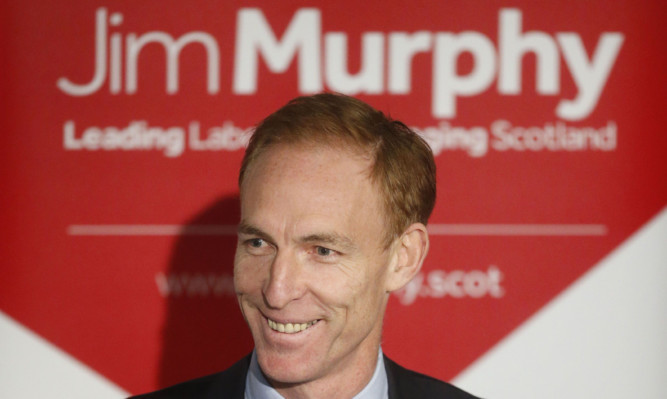A voice of reason has crept into Scottish politics over the past couple of weeks, reminding us that we have more pressing problems than our constitutional future.
While the SNP, in post-conference euphoria, is still fighting the referendum it recently lost and day-dreaming about holding the balance of power in Westminster, one politician at least has alighted on issues closer to home.
Jim Murphy, who is in the running for the leadership of Scottish Labour, wrote in a Sunday newspaper that Scotland’s public services are in need of reform. The NHS, in particular, has been neglected under the Nationalists, he says, with decreasing budgets and growing pressures.
One of the greatest pressures is an ageing population and fewer young people paying tax. Mr Murphy doesn’t offer any ready solutions but he has identified a challenge relevant to all of us, and opened a new line of debate. How novel for a Scottish politician these days to focus on the pragmatic rather than the pie in the sky.
His main competition for the Labour job, the favourite of the Left, Neil Findlay, has chosen to home in on Trident and its removal from the Clyde. Apart from the fact that such a choice is not Scotland’s to make, how significant, really, is this to most Scots’ lives?
Low wages or no wages at all, inadequate housing, poor access to a good education these are the matters that most exercise ordinary voters and Mr Murphy is right to make them his priority.
But even more encouraging from this contender is his decision to highlight wealth creation, where other leaders on the Left obsess about wealth redistribution. How we pay for our public services is crucial to the discussion, he says; enterprise and investment promote growth and jobs, and we need more of both in Scotland.
When Mr Murphy launched his bid for the leader’s role at the beginning of the month, he made this a central theme. All parties, he said, should be talking about how to raise money as often as they debate how to spend it “poverty alleviation is so much tougher without wealth creation”.
In Scotland, where “social justice” is the preferred mantra, Mr Murphy is seen in some quarters as an unreconstructed Blairite. But it is responsible politics to concentrate on training the workforce and fostering business development; only the nave, and the Scottish Nationalists, believe money grows on trees.
Denigrating wealth is seen as the mark of the caring Left and has become a cherished element of the Scottish psyche. People who earn too much or own too much are resented (unless they are Lottery winners and SNP donors), although, even without a grasp of economics, most of us realise that a prosperous nation is better than an impoverished one.
A programme on Channel 4 on Monday night (“How The Rich Get Richer”) revealed that the 3,000 top income tax payers in Britain contribute more to the taxman than the bottom nine million. We might balk at the excesses of the wealthy but we need their wealth all the same.
In Scotland, there is less conspicuous consumption by the super rich than there is in the south, and too few, not too many, top-rate tax payers. To thrive, our economy and our society need to champion the entrepreneurial, the aspirational, the ambitious and the go-getting. Success stories are nothing for a country to be ashamed of, though punishing the well-heeled (through the revamped stamp duty, for example) is considered acceptable.
It wouldn’t do Mr Murphy much good to be the high earners’ hero and he remains a Labour man, with living wages and big spending very much on his agenda. But in even uttering the word “wealth” he is broaching a subject that scares the current London leadership, and carving out a separate course for the party in Scotland.
We have to wait until December 13 for the outcome of Labour’s contest and then it will be just five months until the general election, with all politicians in campaigning mode.
When we do eventually return to some kind of normal, let’s hope it is Mr Murphy at the Holyrood opposition’s helm, to put Scotland’s interests before the Scottish Nationalists’.
